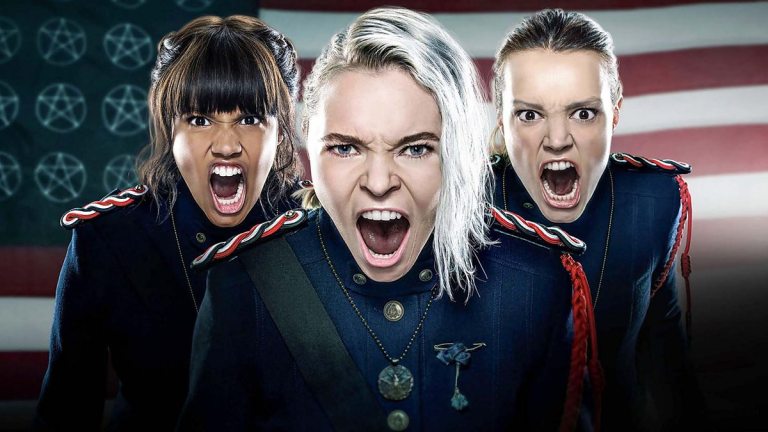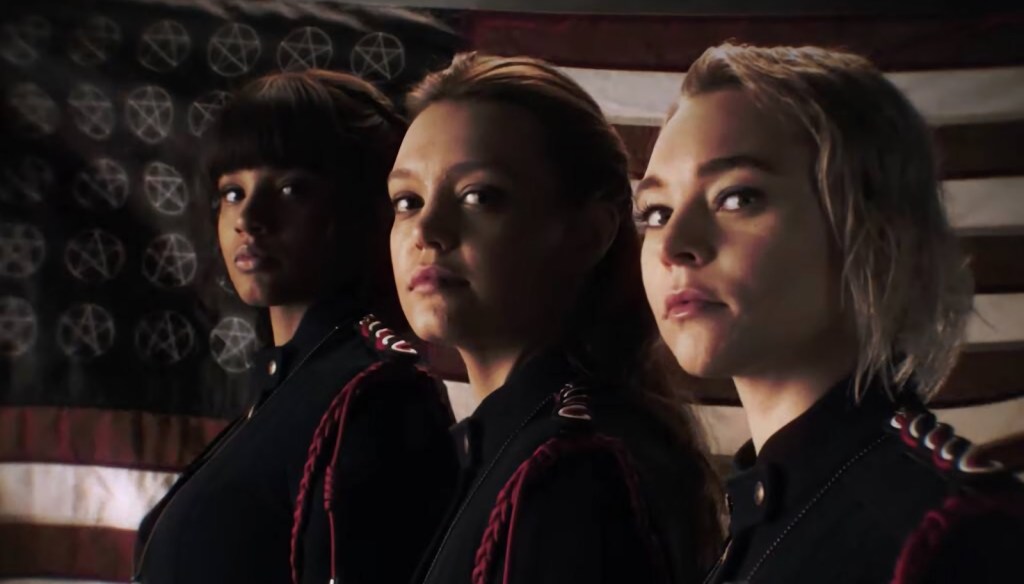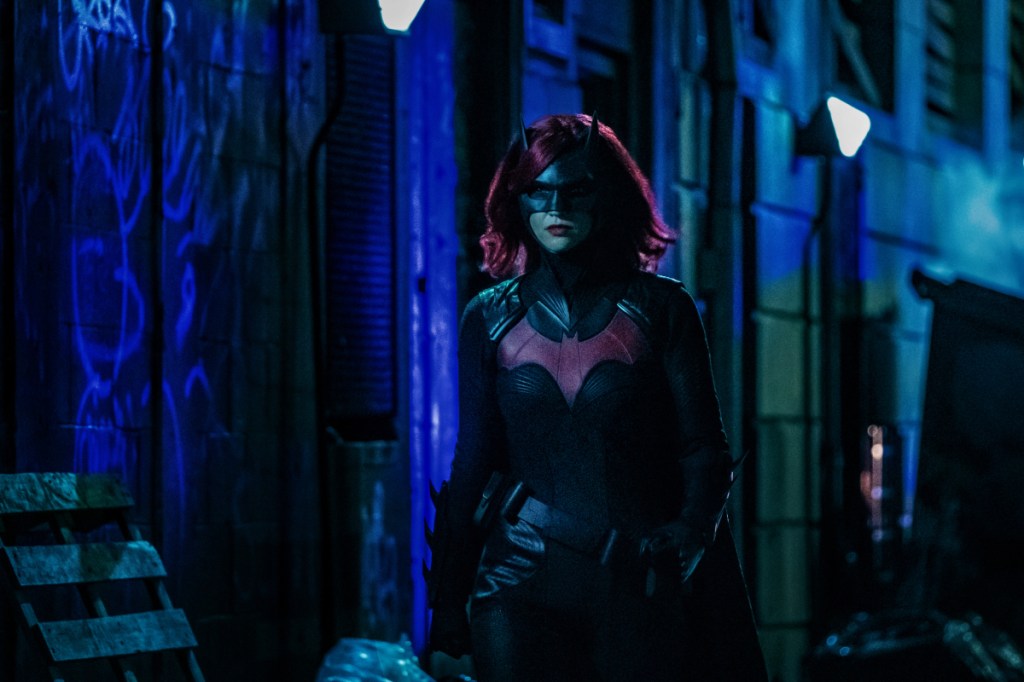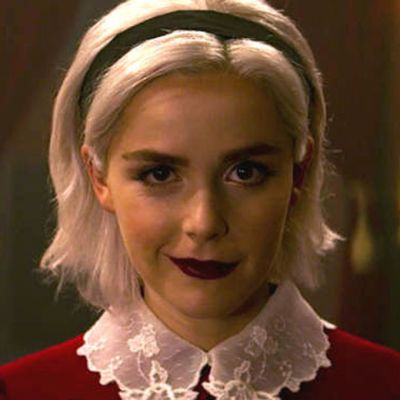Motherland: Fort Salem’s Witches are Superheroes in All But Name
Trying to save the world and have a normal life, today's TV witches are superheroes in all but name, as new BBC Three import Motherland: Fort Salem shows...

Witchcraft on television has a longer history than most of its sister genres and has so far shown no sign of going away. In any given year there is at least one series exploring the pros and cons of the craft, whether it’s sisters who happen to be witches (Charmed), sidekicks coming up with a world-saving spell at just the right moment (The Vampire Diaries) or, as with new addition to the canon Motherland: Fort Salem, witches as a coordinated, terrorist-fighting machine.
The show, now available to stream in the UK on BBC iPlayer, comes out of the gate hard with an alternate world in which the Salem witch trials were averted by volunteering all future generations to fight the world’s wars. As we enter that reality, it’s the turn of three young witches all with different attitudes towards the cause. While one is eager to get started, another is plagued by the expectations of her legacy family, and the third is still grieving for family members who died in the same war.
Departing from the old stereotype of warty noses and pointy hats, modern screen witches are almost always young and beautiful. Blame some of that on network casting and some on the idea that the modern witch is not only trying to survive demon attacks and spells gone awry, but also being a young woman in a world built to suppress them. The late 90s saw this notion come into its own, with Charmed following in the footsteps of shows like Buffy in using the supernatural as a metaphor for real-world struggles.
The secret identities that come hand in hand with both wanting to save the world and have a normal life stick these narratives firmly in the same category as more traditional spandex and cape superhero stories, even if that’s not always how they’re seen by audiences.

Fort Salem (as it’s known in the UK) takes it several steps further than other shows of its kind, creating a fleet of witches fighting for humanity completely out in the open, as well as a group of rival witches explicitly painted as international terrorists. The lack of hiding their noble intentions, and fighting against villains that represent extremely contemporary fears, could be a symptom of the Marvel Cinematic Universe completely dispensing with its characters’ own alter egos for the most part. Everyone knows Iron Man and Tony Stark are one and the same.
For the women in Fort Salem, witchcraft isn’t a fun perk that can be used to create various weekly hi-jinks, but an ancient and non-optional calling that almost certainly means an early death for the young women involved. It’s dangerous and is in direct opposition to pursuing the ‘normal’ life that was so central to shows like Charmed or even the 1960’s trailblazer Bewitched.
Of course, being magical isn’t always painted as a positive thing, with Buffy the Vampire Slayer notably using it as a stand-in for addiction. Willow’s descent into dark magic spans across multiple seasons, and we’re shown that Giles’ own teenage rebellion also involved the misuse of magic. This is a take that hasn’t really followed the genre, with most stories equating power with just that – power.
Still, the persecution of magic during the witch trials is often used by television writers as a handy metaphor for the persecution of other minority groups, and that continues in Fort Salem. It’s heavily implied that some of the witches involved in the original army were there not of their own free will, but because they happened to be enslaved at the time.
It was an idea that The Vampire Diaries flirted with but never committed to in any meaningful way. Starting with Bonnie Bennet, almost every magical character to be introduced was black, and it was implied that high society vampires had benefitted from their magic as well as the atrocity of slavery. New Netflix drama Cursed also shows that the ‘Fey’ kind are routinely viewed with fear, their camps raided and their people murdered.
Perhaps because of this parallel, today’s witches are almost exclusively created in the ‘social justice warrior’ mould, with a mixed bag of results. In a lot of ways, it makes complete sense, given that comic books have always presented these larger than life heroes like Superman and Captain America as fighting for so-called ‘SJW’ concepts like truth and justice. It’s just that in 2020, punching Hitler has become fighting more complex terrorist threats.
To see how modern witches differ to those we were delivered in the 90s look no further than the recent Charmed reboot. While the promise that this Power of Three would be ‘more feminist’ than their 90s counterparts may have rubbed fans of the original show up the wrong way, in reality, it’s an update that has seemingly been focus-grouped like mad to appeal to today’s young women. A generalisation, but one that the new Charmed seems to subscribe to.

Supergirl and Batwoman go for similar things with their depiction of two heroes who are fighting as much for their own rights as they are for the safety of others. While Supergirl certainly began in a different era and thus with a sunnier attitude, it grew to resemble its darker counterparts in subject matter while still holding on to its own tone.
But Motherland: Fort Salem takes the heroine witch concept further into the superhero realm than perhaps ever before, combining the persecution angle with the duties of sisterhood and the muddled moral grey area and grind of fighting for a moral cause in a world that seems hell-bent on showing its worst side. It’s the #resistance, wrapped up in a nice fantastical package.
The various cinematic universes and adjoining shows may have struggled in the past (Wonder Woman and Birds of Prey excluded) to properly present a female perspective within the superhero genre but with shows like Fort Salem, Cursed and others, maybe TV’s witches are doing just fine on their own.
